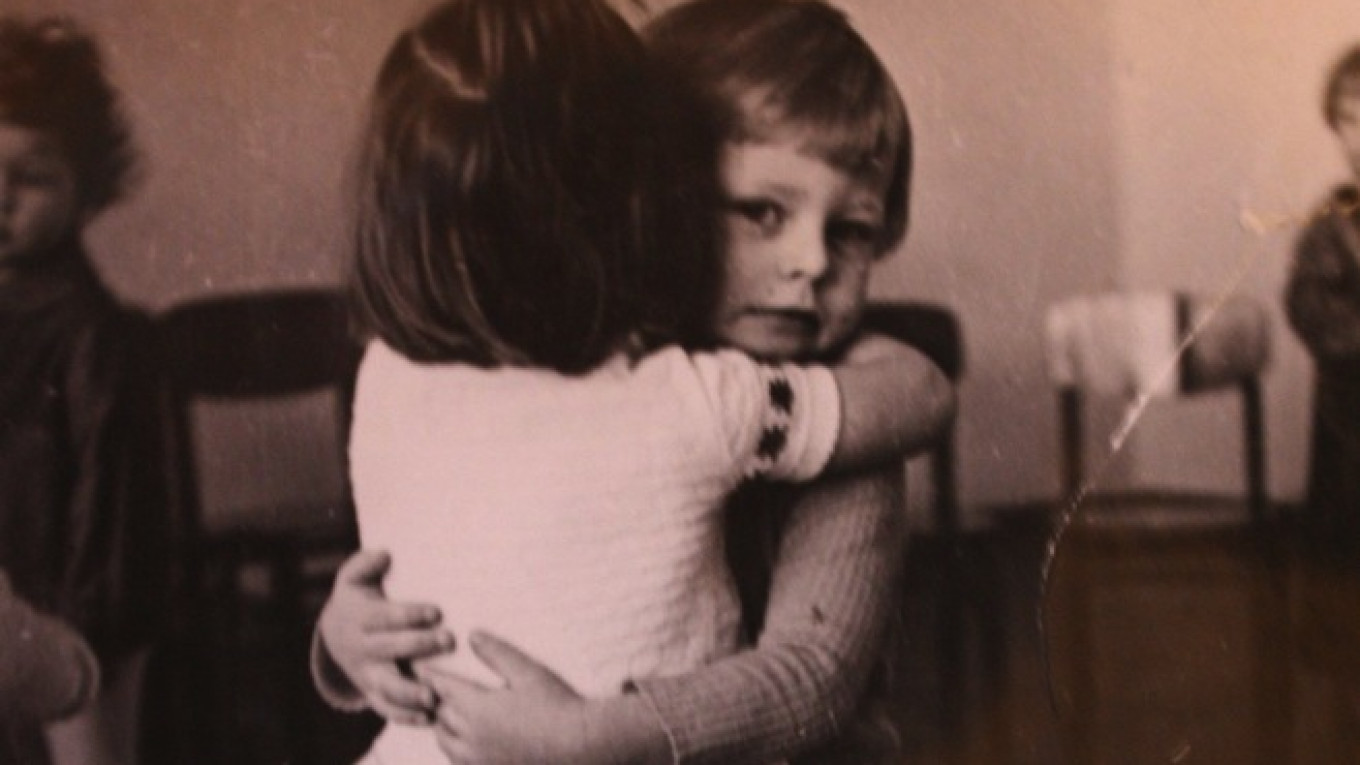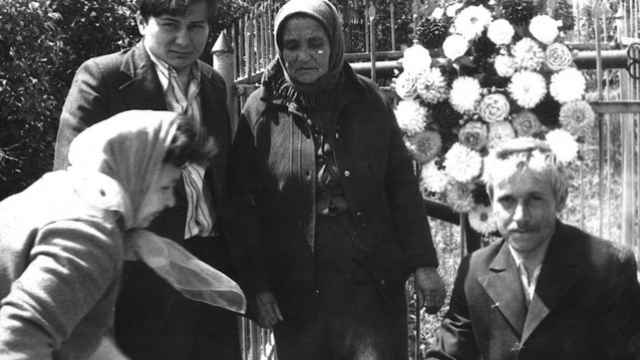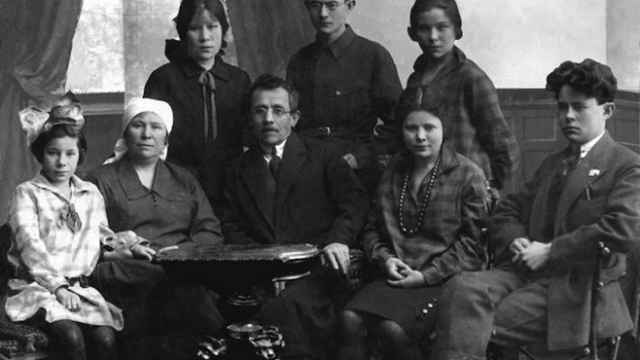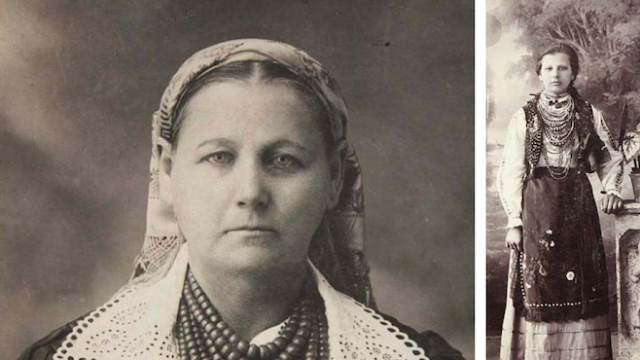In Ukraine, whose tumultuous 20th-century history has spilled over into a bloody battle for its 21st-century identity, every picture tells a story.
Daisy Sindelar traveled to six Ukrainian cities to talk to people about what their old family photographs say to them about who they, and their country, are today. This week, Andriy Sholtes, 41, a writer, tells his family's story from Uzhgorod.
This article was first published by Radio Free Europe / Radio Liberty as part of the My Ukraine project.
I'm an Uzhhorod native; my family has lived here for four generations. My grandparents spoke Hungarian, and my parents and I do, too. It's traditional to teach it to children here while they're young, because it's a difficult language.
I went to a Ukrainian school, but I was also perfectly comfortable socializing in Russian and Hungarian. And I want my sons to speak all of those languages as well. Here it's normal to speak three or even four languages.
My grandparents used to joke that if you lived long enough, you could live in five different countries without ever leaving your village: the Austro-Hungarian Empire, Czechoslovakia, Hungary, the U.S.S.R., and Ukraine.
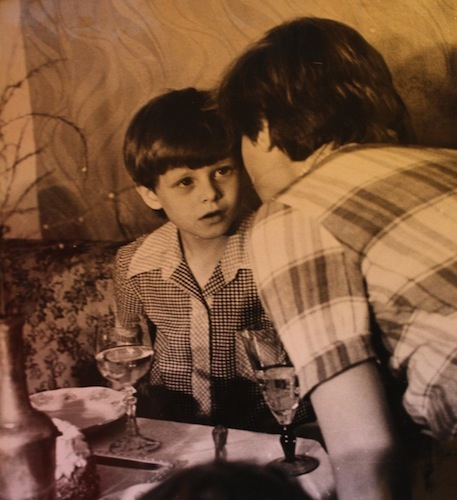
Andriy talking to guests during his birthday party.
My grandparents always spoke fondly about the Czechoslovak and Hungarian periods. I don't think that necessarily means that those were the best times. I just think people's fondest memories are always tied to when they're young.
We always traveled a lot, to Hungary and Czechoslovakia. We had relatives there and it was just normal.
The war in eastern Ukraine is real for us -- a number of guys from here have been killed in the fighting. But I've never been to the east. It still feels far away.
The psychological distance between Transcarpathia and the east is really big, but that's normal. We're just our own region. We have our own advantages and disadvantages.
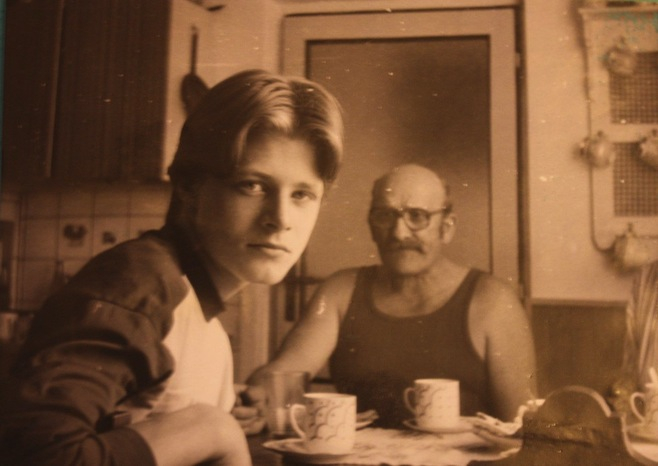
Visiting Czech relatives.
I started university just as the Soviet Union collapsed. But it took a couple years before you could actually feel it.
Things stayed the same for a while -- the people were still Soviet, the buses were still Soviet, there were still statues of Lenin everywhere.
The Soviet way of life didn't have a huge impact on us here -- my parents weren't Communist Party members, but they still had jobs and didn't face any particular problems besides long lines and shortages. There just weren't many opportunities for advancement -- that was the main problem.
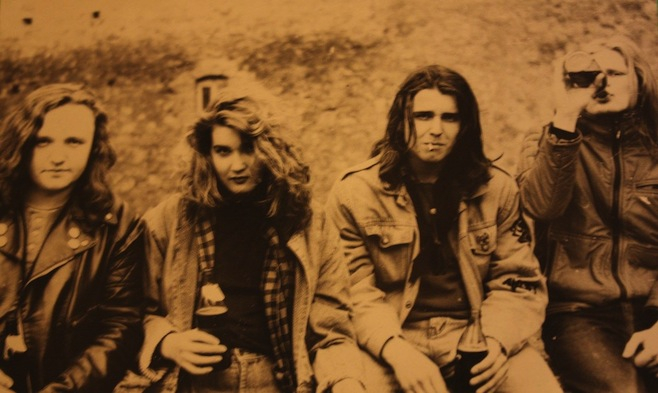
A lot of my friends had been brought up in a fully Hungarian environment -- Hungarian schools, TV, newspapers, culture.
Then when they graduated and entered the real Soviet world, many of them were at a disadvantage, not knowing how to adapt. So in the 1990s, a lot of them left for Hungary. Some did OK, some not.
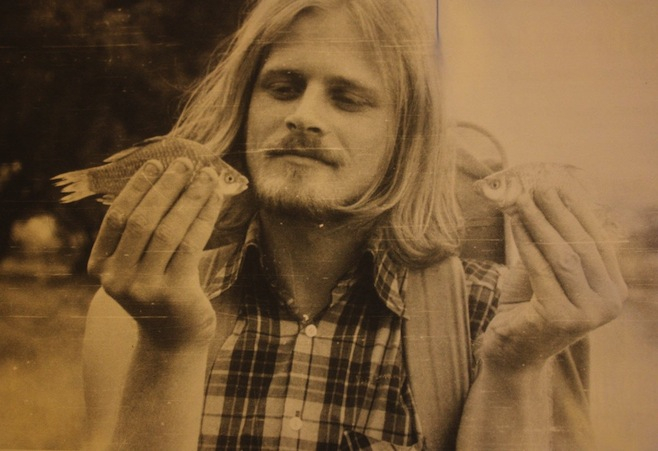
Andriy on a fishing trip in the early 1990s. "We had animals following us around the whole time. Some dogs ate our salo and bread, a bunch of geese dumped my cigarettes in the river, and a cow stepped on my fishing rod and broke it. We still managed to catch some fish, though. In this picture, I think I'm looking at some extra fish we had caught to take home, prior to our departure and prior to their death.
Twenty is a cruel age."
I don't think external circumstances always determine whether you succeed or fail -- it also has to do with the kind of person you are.
But I have no plans to leave Uzhhorod. I like it here. As long as my children are healthy, the war ends, and my book gets published, I'll have everything I want.
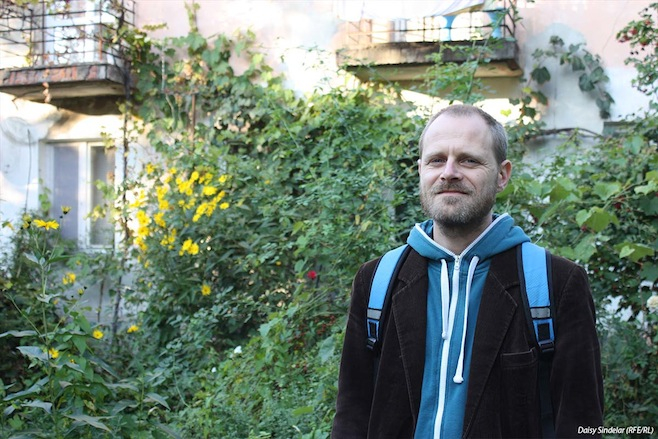
Andriy Sholtes
A Message from The Moscow Times:
Dear readers,
We are facing unprecedented challenges. Russia's Prosecutor General's Office has designated The Moscow Times as an "undesirable" organization, criminalizing our work and putting our staff at risk of prosecution. This follows our earlier unjust labeling as a "foreign agent."
These actions are direct attempts to silence independent journalism in Russia. The authorities claim our work "discredits the decisions of the Russian leadership." We see things differently: we strive to provide accurate, unbiased reporting on Russia.
We, the journalists of The Moscow Times, refuse to be silenced. But to continue our work, we need your help.
Your support, no matter how small, makes a world of difference. If you can, please support us monthly starting from just $2. It's quick to set up, and every contribution makes a significant impact.
By supporting The Moscow Times, you're defending open, independent journalism in the face of repression. Thank you for standing with us.
Remind me later.


